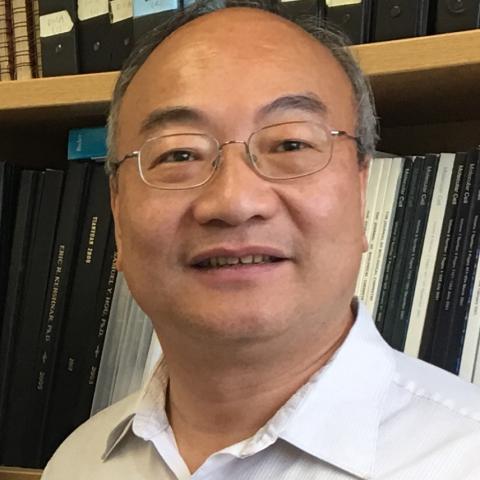- Lectures
- Institute of Biomedical Sciences
- Location
B1C Lecture Room, IBMS
- Speaker Name
Dr. Cheng-Ming Chiang (Univ. of Texas Southwestern Medical Center)
- State
Definitive
- Url
I am currently a Professor of Biochemistry and Pharmacology in the Simmons Comprehensive Cancer Center at the University of Texas Southwestern Medical Center. My research interests focus primarily on eukaryotic transcription, gene regulation, chromatin dynamics, epigenetics, post-translational modification, and molecular virology with biochemical, molecular biological, genetics, genomics, proteomics, and chemical biology approaches. Using in vitro-reconstituted human papillomavirus (HPV) chromatin transcription systems that faithfully recapitulate nucleosome phasing in vivo and biochemical fractionation of nuclear protein complexes, we identified human bromodomain-containing protein 4 (BRD4) as the long-sought cellular cofactor critical for HPV-encoded E2 repressor function in inhibiting HPV E6 and E7 oncogene expression (Genes Dev. 20: 2383-2396, 2006). Since then, my lab continues to analyze the molecular action of BRD4 in HPV transcription and DNA replication, as well as BRD4 involvement in various biological systems, e.g., during normal developmental processes, cell fate decision and lineage commitment, as well as perturbed physiological and pathological conditions including keratinocyte and stem cell renewal and differentiation, heart dysfunction, and cancer initiation and progression. Our first report that phosphorylation of BRD4 plays a critical role in chromatin targeting and functional coregulation with DNA-binding transcription factors and chromatin regulators (Mol. Cell 49: 843-857, 2013) led to subsequent uncovering of phospho-BRD4 (pBRD4) as a biomarker for triple-negative breast cancer progression (Nature 529: 413-417, 2016), cognition in brain learning and memory (Sci. Adv. 7: eabf4376, 2021), cerebellar neurogenesis (Nat. Commun. 10: 3028, 2019), drug addiction, and formation of biomolecular condensates modulating enhancer-driven liquid-liquid phase separation to dictate chromatin dynamics. Our recent elucidation of distinct functions of BRD4 long (BRD4-L) and short (BRD4-S) isoforms in breast cancer (Mol. Cell 78: 1114-1132, 2020), rhabdomyosarcoma (EMBO Reports, Jan 8, 2024), and hematopoietic stem and progenitor cells (EMBO Reports 24: e57032, 2023) using cell-based systems, xenograft/syngeneic/knockin mouse models, and genome-wide transcriptome, proteomics, and DNA/chromatin profiling further highlights the importance of BRD4 isoform-regulated biological control via interactome networking/rewiring, transcription reprogramming, enhancer landscaping, and post-translational modification. With our newly developed pBRD4-binding peptoids DC-1/2 and small molecule inhibitors 14/90/145 that suppress HPV genome replication (Mol. Cell 84: 202-220, 2024), my goal in this application is to define the molecular mechanisms of BRD4-regulated
HPV genome replication, with specific focus on the functional elucidation of phospho-BRD4 IDR-targeting compounds. With decades-long research in various scientific disciplines and review panel experiences, I have the confidence to lead the project and complete the proposed experiments within the indicated timeframe.









 Home
Home

